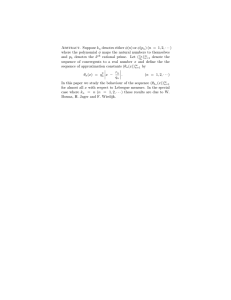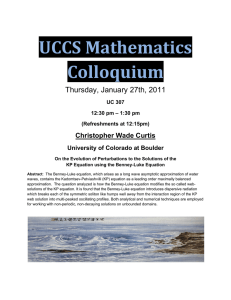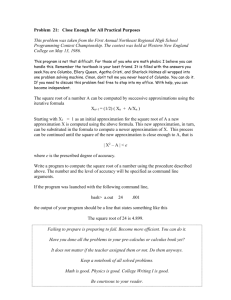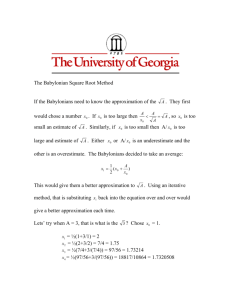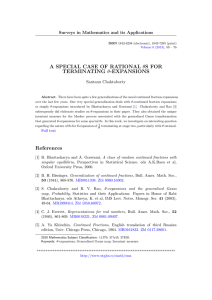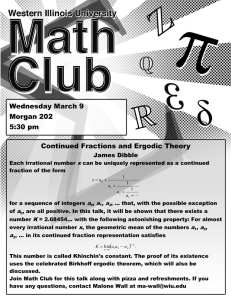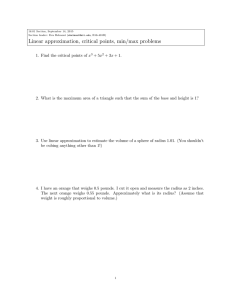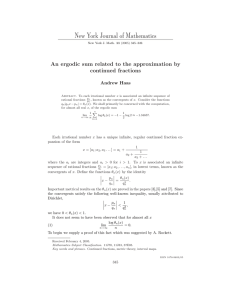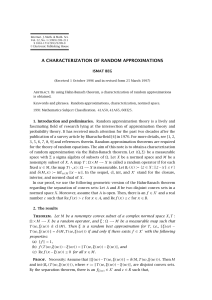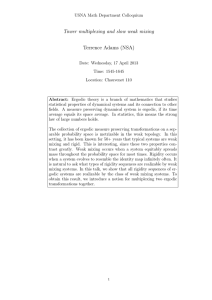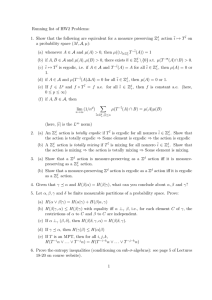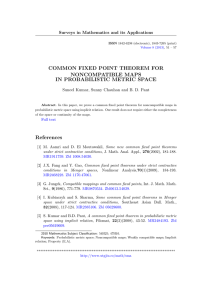p x x ∈ ,
advertisement
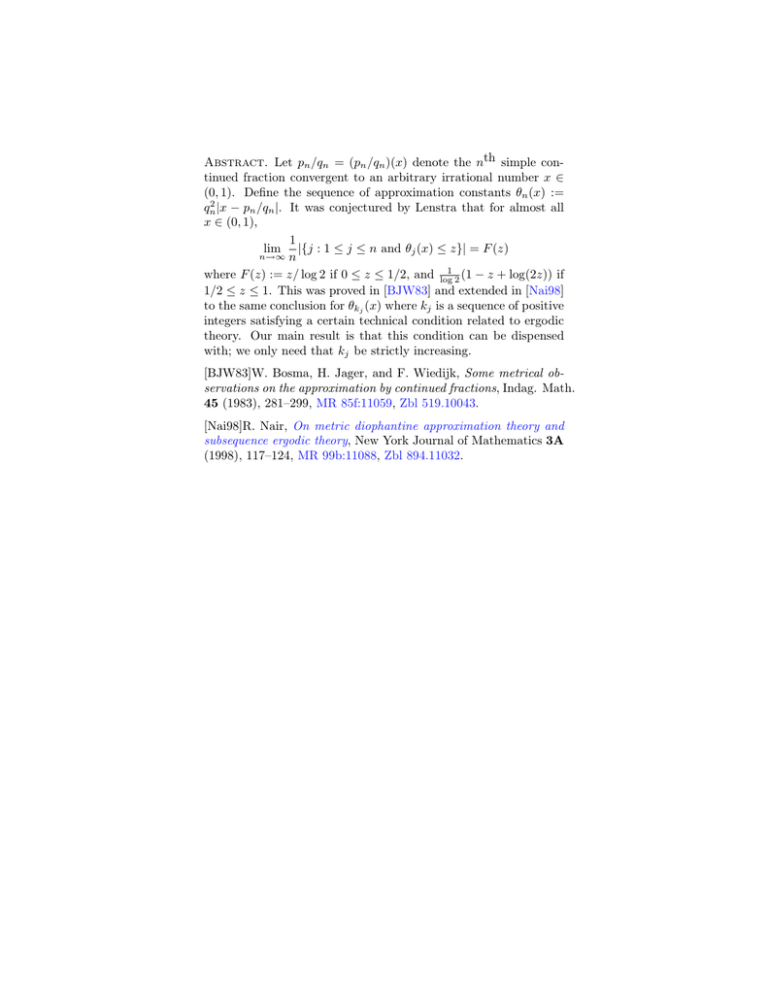
Abstract. Let pn /qn = (pn /qn )(x) denote the nth simple continued fraction convergent to an arbitrary irrational number x ∈
(0, 1). Define the sequence of approximation constants θn (x) :=
qn2 |x − pn /qn |. It was conjectured by Lenstra that for almost all
x ∈ (0, 1),
1
lim |{j : 1 ≤ j ≤ n and θj (x) ≤ z}| = F (z)
n→∞ n
where F (z) := z/ log 2 if 0 ≤ z ≤ 1/2, and log1 2 (1 − z + log(2z)) if
1/2 ≤ z ≤ 1. This was proved in [BJW83] and extended in [Nai98]
to the same conclusion for θkj (x) where kj is a sequence of positive
integers satisfying a certain technical condition related to ergodic
theory. Our main result is that this condition can be dispensed
with; we only need that kj be strictly increasing.
[BJW83]W. Bosma, H. Jager, and F. Wiedijk, Some metrical observations on the approximation by continued fractions, Indag. Math.
45 (1983), 281–299, MR 85f:11059, Zbl 519.10043.
[Nai98]R. Nair, On metric diophantine approximation theory and
subsequence ergodic theory, New York Journal of Mathematics 3A
(1998), 117–124, MR 99b:11088, Zbl 894.11032.
